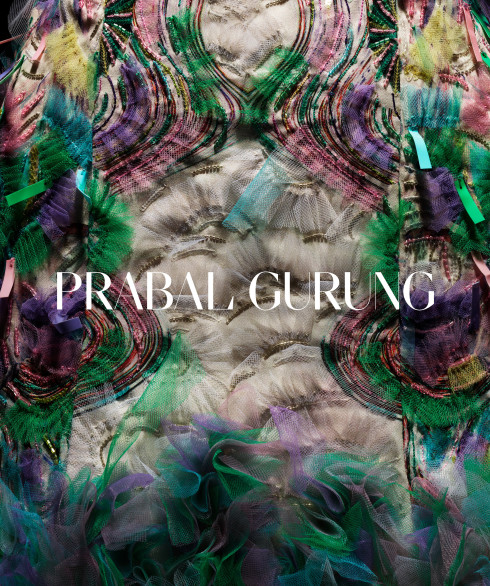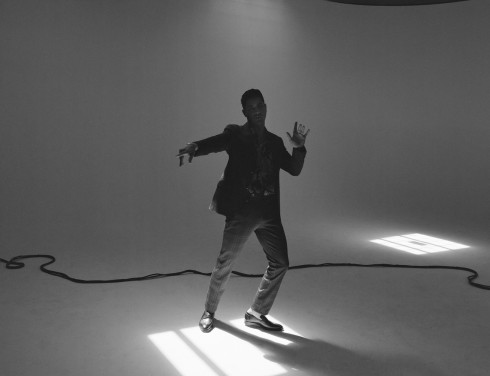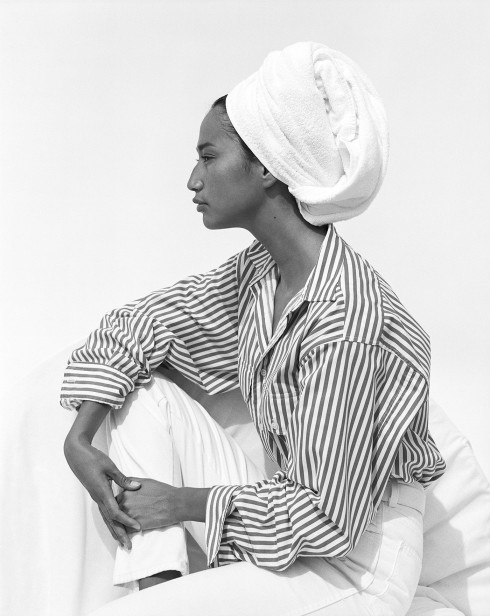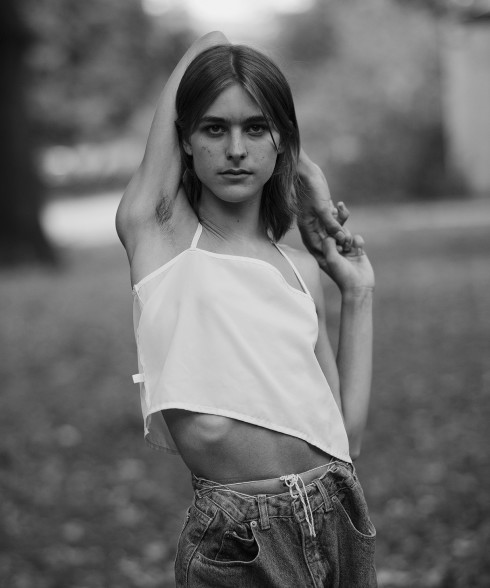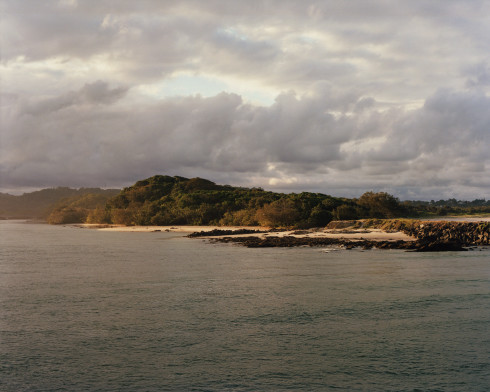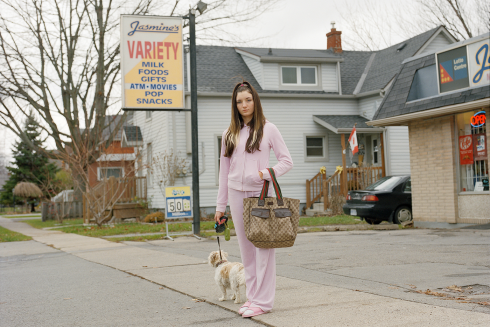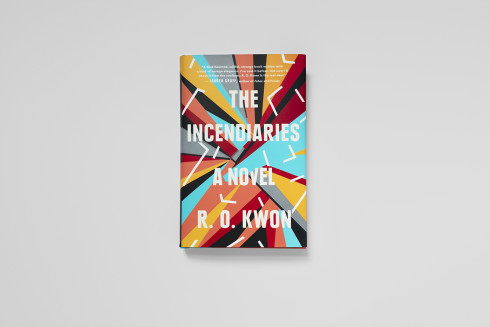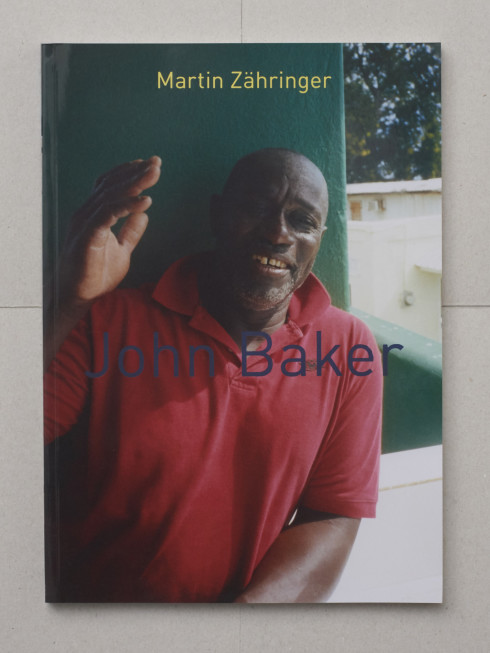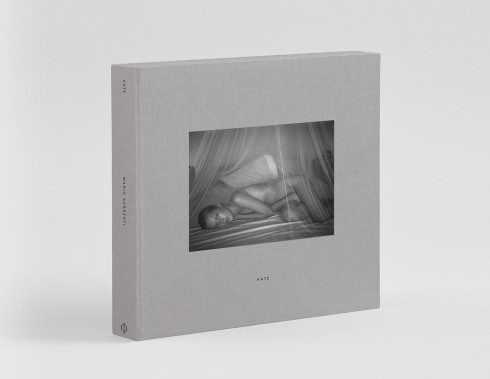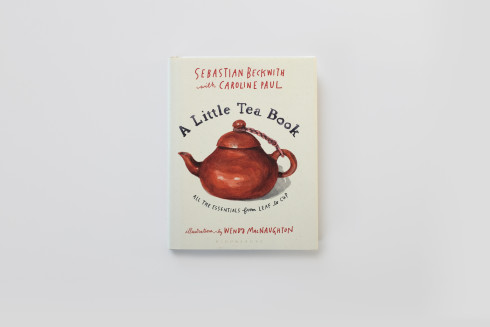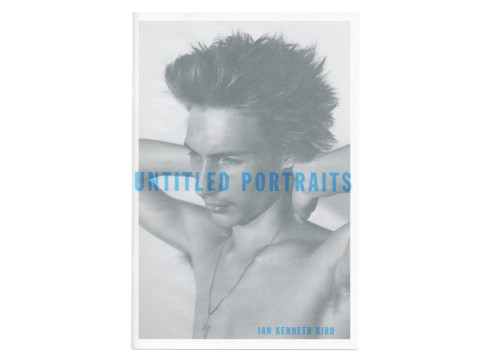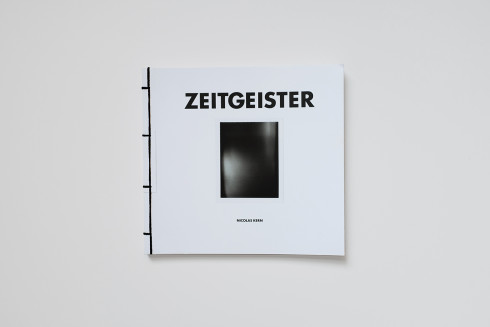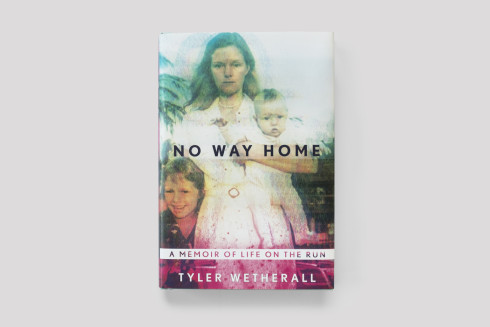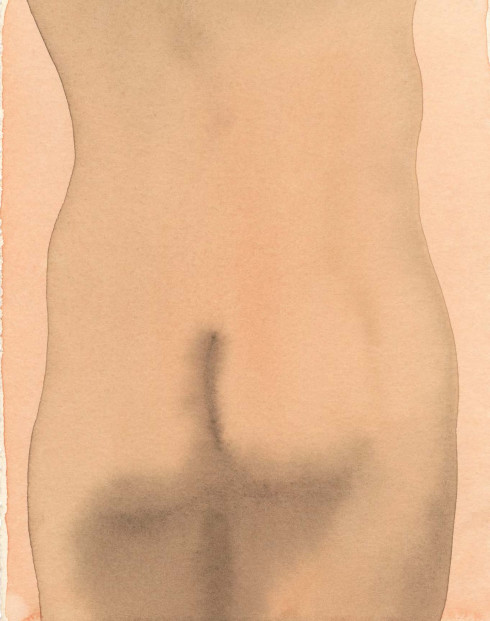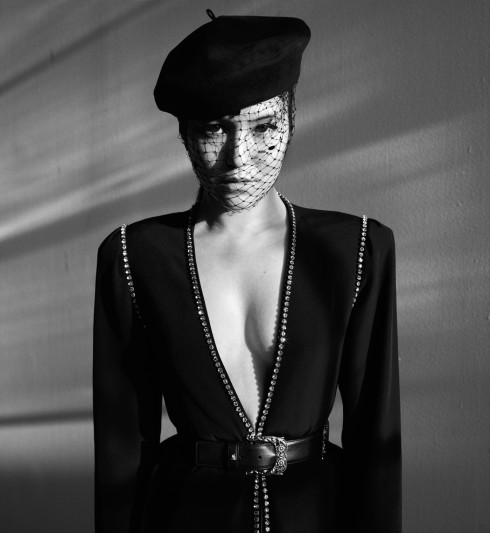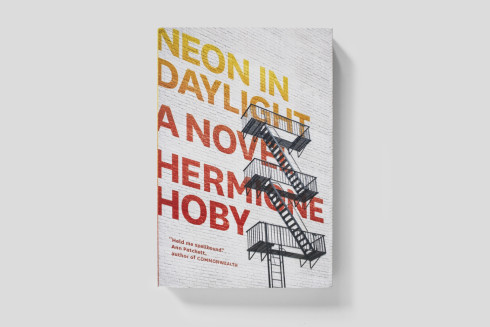
THE LAST WORD: SUNSHINE VALLEY
Get an early start on your summer reading this weekend with “Sunshine Valley,” Naomi Krupitsky Wernham’s gentle tale of a father and son trying to find their way to each other, in the latest edition of The Last Word, our ongoing series of original short fiction.
Ernest wakes up on Friday morning with an urge to climb Captain’s Peak. He lies perfectly still for a few moments, afraid of the ache in his lower back, which he knows will be there, waiting, as soon as he sits up. Ernest groans, slaps the button on top of his alarm, and hauls himself out of bed.
—————
His palm sweats against the phone as it rings. Once, twice. And then the click of the phone being picked up. In the interminable pause between when she picks up the phone and when she speaks, Ernest can hear Adrienne inhale. The softening between her brow as she exhales.
“Hello?”
Ernest awakens his voice with a manly hhh-ahh that he is still shocked to hear come out of his own lungs, rather than his father’s. “Adrienne, hi. It’s me.”
He can hear her sigh. (Brow raised, wary). “Hi, Ernest.”
He twists the phone cord around his finger—like a little girl, he berates himself. “How are you?”
“We’re fine.” Her voice is guarded.
“Good, good.” He clears his throat. “Good.” His heart beats faster. Tuh-thump, tuh-thump, tuh-thump. “Well, I gotta go. Good talking to you, Addy.” Coward.
She sighs again. “Bye, Ernest.”
“Wait!” he exclaims.
She sighs. Again. A wave of frustration hits Ernest in the chest.
No one else can make him so thoroughly agitated so quickly. He grips the phone with his sausage fingers and taps one of his feet rapidly on the carpet. “What, Ernest?”
Don’t ‘Ernest’ me! he wants to say. “What are you doing this weekend?” is what he says instead.
“What’s this about?”
Ernest should have known better than to think she might make this easy on him. “Nothing. I just haven’t seen James in a while and I’d like to take him…camping. Or something. You know, if you’re not doing anything else.” He feels nauseous.
“I guess that would be fine,” Adrienne says.
“Great!” Too loud, too enthusiastic. Tone it down. “Great. I’ll get him Friday.”
“Roger and I are going to dinner. Can you come in the afternoon?” Adrienne sounds suspicious still, as if Ernest must have some ulterior motive for seeing his son. My own damn son.
“I’ll be there at two.” Ernest slams the phone into its receiver; stricken as usual with images of Roger ripping Adrienne’s clothes off in a fit of passion. Roger is a retired army sergeant with a tattoo of Aries fucking Betty Boop tattooed across one shoulder blade.
Ernest stretches his arms up and back and yawns. An orchestra of tiny snaps and crackles in his chest, his shoulders, his back. He stands up, walks to the bathroom. He lets his underwear fall down around his ankles and steps into the shower. A million lukewarm drops pound his skin. This time of year, the pipes running through the Georgia earth are almost as warm as the air; it is almost as if he is showering with someone else’s sweat. Ernest turns the water on higher and higher. The drops become tiny fists. Ernest stares down the length of his naked skin and then shuts his eyes. You are okay.
—————
At promptly 1:25, Ernest pulls up outside Adrienne’s.
Ernest rings the doorbell and steps away. He stands up straight.
He balances on the creaky first step of his old porch.
Adrienne opens the door in a red silk robe. Her dark hair is pulled up away from her face, which looks to Ernest exactly the same way it did fifteen years ago. Ernest stares for a moment, taken aback, as usual, by her familiarity. He could slip inside, shut the door, find his way into the kitchen with his eyes closed, breathe easy. Find his way into Adrienne. “Come in,” she says now, and Ernest snaps to attention.
“Thanks,” he replies. They are always careful with one another.
“Jamie!” Adrienne strides ahead; Ernest follows. The house is dark for midday; the living room shades are still drawn. It has the same smell of old perfume and almost-stale coffee that it always has. Dust hangs in the air, watching him; the house shifts slightly on its foundations, judging him. Asking him how he’s been with the all-knowing tone of a grandmother. You look skinny, the house whispers. Adrienne was such a nice girl. What’s wrong with you? Ernest glares. The house does not believe in time passing. Down the hall from him, the real Adrienne calls, “Jamie, petit, your father is here. Are you ready?”
Jamie doesn’t answer, but Ernest hears the thud and crash of things being tossed into an overnight bag. His heart begins to beat faster. “Did you tell him I was coming?” he asks. Stupid.
Adrienne raises an eyebrow. “He’s looking forward to seeing you,” she says.
Ernest grips the edge of the kitchen table. “I’m his father,” he says, more defensively than he meant.
Adrienne raises the eyebrow almost impossibly high. “Oh, yes.” The sarcasm drips like honey, glues Ernest to the floor.
“I am a good father, Addy.”
“Don’t ‘Addy’ me. You’re a good father when the mood takes you.” Her hands shake slightly, which she tries to hide by deftly flicking a cigarette from its carton and lighting it.
Ernest can feel his face getting hot. Bile burns the back of his throat. “At least I don’t parade my conquests in front of my kid,” he growls.
The air in the kitchen thickens. Adrienne’s eyes narrow; her mouth disappears into a thin line. “You watch what you say in my damn house,” she says, voice so low she could be purring.
“Mom!” Jamie’s voice as he yells from the top of the stairs snaps them both to attention. Adrienne turns away from Ernest and begins to paw aggressively through the pantry.
“Yes, sweetheart?” she replies, uncorking a bottle of wine.
“I can’t find my blazer! Did you wash it with the regular laundry again?”
“I don’t think so, honey,” says Adrienne. “Did you look in the bathroom? Maybe Roger moved it.”
“It’s not in the bathroom!” shouts Jamie. “And don’t let him touch my stuff!”
Ernest cranes his neck to see the top of the stairs and waves. “You look tall from here, Jamie! What are you now, six feet? Six-five?”
“Haven’t grown, Dad. Still five-six.”
“You look taller to me!” Ernest can hear tthe end of his sentence turn up. He clenches his hands together to calm himself down. “You don’t need your blazer, buddy, we’re going to the mountains!”
Silence for a minute, and then Jamie’s head pops over the railing at the top of the stairs. “I hate the mountains, Dad.”
“I thought you liked them,” said Ernest. He feels sick. “There’s no such thing as hating the mountains, bud.”
“I’ve hated them since I was eight.”
Ernest sighs. “We’ll talk about it in the car.” He turns to Adrienne. “Since when does he hate the mountains?”
“You heard him,” she says, and shrugs.
Ernest paces. “I thought you had him signed up for the Outdoor Club at school.”
“Ernest, he’s fourteen. I don’t have him signed up for anything.”
Ernest scratches the back of his neck. They had talked about this. He looks at Adrienne, whose face appears to have been replaced with a block of ice. “I thought we talked about this,” he says.
“You talked,” she says. “It’s not worth fighting about with him. He likes to read plays, he likes to watch old videos of ballet—so what? He’s a nice boy, he does his homework. He’s not caught up with all the violence at the high school.”
“He’s my son,” Ernest says.
“So act like a father,” says Adrienne, acid on her tongue.
Upstairs, Jamie turns the water on full blast until the lukewarm water runs cool. He leans against the edge of the sink, examining himself in the mirror. He notices a crease in his brow and a hard mouth line that looks uncannily like the face his father used to make while shaving. Jamie slides a palm across his own cheek; it is baby-smooth. He stares at himself until his face relaxes into its familiar soft curves.
Jamie splashes water on his face and wonders why he is so nervous. Maman had promised not to say anything (even though I’m sure he already knows, cheri, you’ve always been so sensitive). And he’s your father, he tells his reflection. Ernest had, at one point, been Adrienne’s other half. Had, at one point, been equally familiar, inseparable from the comforting parental lump with its smell of Sunday morning waffles and spicy crawfish and clean sheets. Jamie takes one last look at his reflection in the mirror and forgets to turn the light off as he leaves the bathroom.
—————
Jamie comes thumping down the stairs. It’s true—he hasn’t grown an inch. Jamie has always been slight. Even his features are delicate, lifted as they are from his mother’s face. Same stark, surprised-looking eyes, same pursed lips, same cheekbones. Same long fingers. “Hey, dad,” Jamie says.
“Hey, kiddo,” Ernest replies, gruff as he can manage.
They hug awkwardly, Jamie reaching around Ernest’s waist, Ernest placing his two hands on Jamie’s back for a quick pat before they stand apart from one another, one man hulking, one soon-to- be-man almost floating where he stands.
Adrienne clasps her hands together. “Well!” she says brightly. “You two have fun!” She kisses Jamie, shoots a warning glare at Ernest, and before they know it, they have both been whisked out the door and stand blinking in the sunlight, like two rats startled out of a hole.
“Well,” Ernest says.
“So,” Jamie says.
They both stand still for a moment.
“Let’s go, then,” Ernest says.
—————
The silence in the car is not deafening. If it were deafening, Ernest thinks, it wouldn’t be so uncomfortable. He drives with hands at ten and two, tapping his index fingers to an imaginary beat, occasionally glancing at Jamie out of the corner of his eye. Jamie stares out the window, features slack, looking listless.
Say something, Ernest commands himself. Now! “How’s school?” he hears himself ask.
“Fine.”
“Your teachers…they’re good? Classes interesting?”
Jamie shrugs, in confirmation or denial.
“Girls? Are you thinking about—do you, yet—” Ernest forcibly shuts his mouth. Stupid. Jamie shoots him a stare halfway between terrified and withering.
Ernest taps his fingers more vigorously. Music, he thinks. He switches on the radio, fiddles with the knob. Static, then staticky country, then something in Spanish, then a commercial, then more static. “What are you listening to these days?”
Jamie shrugs. “A lot of stuff.”
Ernest feels desperate. He clicks the radio off. Nothing good on, ever.
Silence reigns for a few painful minutes.
“I thought we could go camping this weekend,” Ernest says, finally. “Get out of the city.”
Jamie shrugs again. “Sure.”
Ernest glances sideways at Jamie. “Really?”
Jamie doesn’t take his eyes away from the window. “Yeah. Sure,” he says. Ever since Adrienne’s, Ernest has been psyching himself up for an argument—about the tent, the bugs, the cold, the boringness of nature, the stupidity of it all. Maybe he just doesn’t care about you enough to argue, says a small, vicious part of Ernest. Maybe it’s just easier for him to let you have your way. Ernest is struck by a stomach-wrenching shred of memory, his own father driving, he eager to be anywhere else.
—————
Ernest rolls the windows down as they climb into the foothills and the air begins to thin. He breathes deeply and convinces himself he can feel the oxygen in all of his bones. He feels invincible.
Ernest stops once, to pee in a gas station. Jamie stays in the car, staring out the window, translucent skin immune to the Georgia sun that lights up his hair.
—————
Sunshine Valley Campground is rarely sunny. It is sheltered in a dip between two mountains, and the air is usually cool and fog usually hugs the ground well into the afternoon. Ernest and Jamie drive into the campground with the dusk and their car blows wisps of fog away on the road before them.
The wooden posts denoting campsites still sprout in front of each tent-sized bald spot in the earth. The terra cotta bathrooms stand in the center clearing of the campground like a church. Ernest leans his head out the window and the coppery, clear smell of spring makes his eyes water. He glances at Jamie.
“Which one looks good?” Ernest asks.
Jamie scans the area around the car. “I dunno.”
“How about over here—near the stream?”
“Sure.”
“It’s better than near the bathroom, I can promise you that.” Jamie smiles. “It looks good.”
Ernest can feel every bit of his skin. He feels good and solid and real.
They pull into the first spot next to the stream. The ground is perfectly level, the fire pit is filled with ashes and brittle, half-burned logs. “You know, James, this is what your granddad would have called a ‘prime-rib situation,’” says Ernest.
“Granddad thought everything had to be about meat,” says Jamie.
Ernest shakes his head. “Help me unload this stuff,” he says, shortly.
As they tramp back and forth from the car to the picnic table, unloading the tent and sleeping bags and cookstove and propane, the bag with peanut butter and instant coffee and bread, the other small bag with mosquito repellent and citronella candles and spare batteries, Ernest feels hopeless. You’ve waited too long, he tells himself. You’ve lost him. “How old were you last time we got to go camping together, son? Eight? Nine?”
“Something like that,” says Jamie. His pale face is flushed and covered in a thin film of sweat.
“Have some water. Feels good to get a little sweat going, doesn’t it?”
Jamie gulps water. “Sure, Dad.”
He hands the bottle back to Ernest, who inhales a little water, chokes, and succumbs to a roaring coughing fit. Stars twinkle in his peripheral vision as he struggles to get his breath, and he leans against a tree, breathing heavily. He looks at Jamie, and asks, “Do you remember how to put a tent together?”
Jamie says he thinks so, and Ernest sets him to building poles—unfolding them and sliding them together so their joints disappear and they become supple and long. Ernest weighs down a tarp with rocks on each corner, and begins to roll the tent out on top of it.
“These are done, Dad.”
Ernest looks over to see Jamie wielding a tent pole like a sword. His face in the filtered sunlight suddenly looks exactly the same as it did when he was six years old, and Ernest is seized by a desire to pick Jamie up and spin him around. Then the light changes, and Jamie is Adrienne. He bends down, rests his hands on his knees, and sucks air desperately. He cannot catch his breath.
—————
Jamie goes to bed early, zipping the tent behind him. He climbs into his sleeping bag and lies there, wide awake. He smells plastic and dust and the clearness of mountain air and remembers the three of them—Maman, Ernest, Jamie, smaller, lying in a tangle of hair and summer dust in this very same tent.
Jamie wonders what it would feel like to say, Dad, I’m gay, but in his imagination he looks up at the vast expanse of Ernest’s body and cannot find his vocal cords. He suddenly knows with all his heart that he will grow up to be a man.
—————
Later, the two almost-men lie side by side in the tent, surrounded by a chorus of forest nightlife, and separated by what feels like miles. The tent is smaller than Ernest remembers, or maybe he is larger. He doesn’t work out as often as he used to. He feels heavier all the time. Gravity is taking its toll, forcing him towards the earth like a melting candle. He can almost feel his skin dripping sometimes, the bones of his chest caving ever so slightly so his bulk shifts south; the tops of his shirts are almost empty while the bottoms are beginning to stretch around the growing roundness of his sides and stomach. He is decomposing. Ernest lies on his back and imagines he can feel himself dying. His sloppy organs curl around themselves; they atrophy like a dried-up sponge. Ernest doesn’t believe in God.
Jamie sighs in his sleep and makes a soft suckling noise—pop, pop, pop. Ernest shrinks away, profoundly uncomfortable in his own skin. He lies in the dark next to the boy he made.
—————
Morning. Ernest can’t remember falling asleep. He groans and rolls onto his side, then peels himself away from the earth like a Band-Aid away from soft skin. He stares at the mountain they will climb, squinting at the place where it meets the fog.
—————
Ernest and Jamie walk single-file up the trail, which runs near a river that winds its way down the mountain as if the elevation is nothing. They are climbing into a thick bank of fog that turns the world around them into ten feet of gray shadow and wispy air. It is steeper than Ernest remembers. Small rocks tumble down the hill in his wake. Sweat rolls down behind his ears, down the front of his chest, gets stuck in the waistband of his pants. He glances back at Jamie, who is white around the mouth, whose normally bright, big eyes look small in his over-heated tomato of a face. Ernest knows he should stop. Instead he says, gruffly, “You’re all right,” and continues to hike. He can feel his muscles shriveling away as he walks, and moves faster.
The midday sun rises over the damp valley. Ernest and Jamie crawl above the fog line. They pause and lean against the side of the mountain. Sun beats down into their eyes and skin. Jamie, lost inside a pit of anger—at his father for drag- ging him here, his mother for letting them go, himself for hating his father, himself for being skinny and thin and small and terrified in the wake of every other real person on the planet—imagines floating on the mattress of fog below him, held up by something bigger than himself. And Ernest, lost inside his own, separate pit of anger—at gravity for pulling him down and at time for letting it and at himself for being this monster who hasn’t offered his son any water yet—imagines the same thing as his son. For a brief moment, the two almost-men are suspended in the exact same train of thought.
“Dad,” says Jamie. “Can we turn around?”
Ernest looks at Jamie, who is still pale and white around the mouth, shaky in the hands. “We’re more than halfway there, bud,” he says. “We can’t stop now.”
Jamie purses his lips. Ernest imagines Adrienne. So act like a father, she says.
“Come on,” says Ernest.
Jamie heaves himself away from the rocky ledge he’s been leaning on. “Okay, Dad,” he says. He pictures his mother. Your father has been having a hard time lately, she says. He pictures Roger. I’m gonna steal your maman away for the weekend. That okay with you, little man? Jamie wonders what it would feel like to be as solid as Roger or his father. He feels light, and translucent, and barely real. He wonders when his parents became your father and your maman and why phrasing it like that makes him feel so orphaned. He wonders when his parents stopped belonging to him.
Ernest and Jamie keep climbing. The sun rises higher and higher and makes Ernest sweat like grass on a humid morning. He relishes the feeling of evaporating.
—————
They get to the top of the first ridge. There is a map of the area, illustrated with facts about the landscape and encased in well-worn plastic. There is a disheveled picnic table. Over peanut butter sandwiches, Ernest unfolds a creased and worn topographical map. “So we’re…here,” he says, pointing with a cracked fingernail. “And this ridge right here has the best view.”
Jamie chews slowly, swallows, nods. Ernest finds himself worrying about Jamie’s forearms, resting on the rough, splinter-infested table with their papier-mâché skin. “You know, when you were little, your mom and I used to take you up here,” he says. His voice comes out harsh, gravelly. He is afraid Jamie will crack like porcelain.
“That must have been a long time ago,” Jamie says.
“It wasn’t that long ago.” It occurs to Ernest that seven years for Jamie is not the same thing as seven years for him. “Do you remember living with both of us?”
Jamie looks up from his sandwich, surprised. Ernest usually avoided talking about his mother. “Maybe a little. I mostly remember Maman.”
“Yeah.” Ernest wishes he could shrink. He has always felt huge near Jamie, unstable, monstrous.
Jamie tries to stop the next sentence from coming out of his mouth, but he feels miniscule and cannot. “I remember one Thanksgiving, Uncle Peter came because Maman wouldn’t get out of bed to make a turkey.”
An iron fist grips Ernest’s heart. “You don’t have an Uncle Peter.”
“Maman’s brother? He was there all the time to help her when you were gone. You really don’t know she had a brother? He died of a heart attack?” Jamie looks at Ernest with a heart-wrenchingly blank expression. If Ernest didn’t know better, he would have said there was a hint of a smile.
Ernest bites the inside of his mouth and looks down to watch an ant traverse the top of the picnic table. There was a time he would have told Jamie that Peter Cullings was a man Adrienne met in the fish section, a man she took home and fucked in Ernest’s bed, in Ernest’s house, and Ernest only forgave her because Jamie was four and Ernest couldn’t imagine a life where he did not belong to Jamie and Adrienne. Instead Ernest tastes blood, grips his sandwich so hard peanut butter guts ooze out through the bread.
Jamie scuffs his feet against the earth to break up the silence, and then offers, “Maman used to say you were gone so often she could have a new husband and you wouldn’t even notice.”
Ernest glances at Jamie, who stares right at him, unabashed. “She shouldn’t have said that,” he replies. It was the least hostile thing he could think of. Then he tries to say, I’m sorry I was gone so often, but can only ask, “Does she talk about me a lot? Your mom?”
Jamie shrugs. “Not so much since Roger. I think…,” his voice trails off.
“Roger. That weasel-cocked asshole. Sorry. I’m sorry. I shouldn’t have—well. What do you think? I interrupted.”
“I think she was just mad at you.”
“We were pretty mad at each other.” Ernest can feel his heart beating in his face. They eat in silence, tonguing gluey peanut butter away from the edges of their teeth.
“Dad?”
“Yeah?”
“I think Roger is sort of a weasel…a dick asshole, too.”
“A dick asshole,” says Ernest, quietly. He feels blindingly happy. He realizes all in a rush how much he loves his son.
“Come on,” says Ernest. “We’ve got a long way to go still.”
—————
Jamie ends up walking ahead of Ernest, grateful that Ernest cannot see his face anymore but terrified that he will walk too slow, that he will trip, that he will collapse, that Ernest will give up on him and leave him there, walk down the mountain alone. He breathes deeply but it is not enough to fill his aching lungs. The back of his throat feels cold and dry. He swallows and wipes sweat away from his eyes.
Ernest feels sick. His legs, which had felt light and strong when he began walking, have begun to ache. Little ropes of pain wind their way up and down his knees and ankles. His muscles feel like lead. He watches Jamie’s stick legs wobble up the trail in front of him. I would be fine if I only had that much weight to carry, he thinks. He is overwhelmingly angry.
The trail they are climbing is a narrow strip of earth that hugs the side of the mountain gently, as if it could peel off at any second. Tiny avalanches of gravel topple over the edge every time Ernest or Jamie takes a step. Neither one of them looks down.
Jamie is not looking down when his ankle turns and rolls. He gasps and sits down abruptly, clenching his fists and eyes shut so as not to cry.
Jamie tries to stand and falls, clutching his ankle.
Ernest feels his already-speeding heart rate quicken. “Are you okay?” he calls. He kneels beside Jamie.
Jamie cannot speak. His mouth is clenched together and his brow is knit in towards itself. He hates that he tripped. He hates his body, his fallible, flimsy body, for not being able to walk up a hill. One stupid hill.
“Let me see,” says Ernest. He encircles Jamie’s ankle with his hand to look at it. It is already swelling where Jamie’s heel meets his calf. Jamie whimpers as Ernest draws a finger over the swollen part. “It doesn’t feel broken,” says Ernest. “Can you walk?” Ernest speaks as calmly as he can. He watches Jamie unfold himself and wobble to standing. “You can walk,” Ernest says, relief making his voice hard again. “Let’s go.”
Jamie tries to put weight on the ankle and grimaces. He looks at Ernest. He feels miserable. “I can’t,” he says. Fallible, flimsy body.
Ernest kneels next to Jamie and scoops him up. Jamie is light. In his father’s arms, Jamie feels a crushing combination of shame and relief. His ankle throbs and swells.
By the time they reach the top of the mountain the fog has come back in for the evening and the air is thick and white and damp. Ernest digs a hole into a sandy patch of earth and builds a tentative tower of small dry grass and tiny twigs and lights a match and blows on it until it holds a flame. He puts more grass and twigs on top and blows on that and then puts bigger and bigger twigs and sticks and finally shards of a gnarled dead tree stump, curved and dense from growing on the windy summit.
Ernest stares into the fire and thinks about his insides, which are aging. He thinks about decomposition and feels his skin shift, peel away from his body. He feels like he is falling apart. He looks at Jamie and tells himself, Today you carried your son up a mountain. Jamie looks at the fire and tells himself, You are on top of a mountain, and both almost-men wait for the inevitable symbolism to make them feel whole and real and good.
While they wait, they eat dried peaches and fall asleep in front of the fire, tired legs growing roots into the rocky earth.
—————
They wake and it is dark and the fire is a small pile of embers. Jamie is sweating and his skin is itchy. He unfolds himself gingerly from his father’s lap. Ernest mumbles, half asleep.
“Dad?”
“Mmm.”
Jamie pokes Ernest. “Dad.”
Ernest opens his eyes all the way. “Yeah.” The whole day is with him instantaneously; there is no blessed moment of peace before remembering. “Jamie. How do you feel?”
“Can we go home?”
Ernest sighs. “Yeah. We can go home.”
Ernest wraps Jamie’s swollen foot tightly in a spare t-shirt from his backpack. Jamie stands, winces, stands a little taller. Ernest finds a flashlight in his bag, thanks his father for the wilderness survival skills, shakes his head at the thought that he is thanking his own father and has hurt his son.
“Can you walk?” He asks Jamie.
“Yeah,” says Jamie. He pauses. “Dad?”
“Yeah,” says Ernest.
“Thanks for carrying me.” Jamie takes a deep, wobbly breath. “I know it wasn’t, like, the manly adventure you wanted.”
Ernest looks at Jamie, standing with more weight on one foot than the other at the edge of his flashlight circle. He suddenly sees that Jamie will have a growth spurt soon. He remembers that his own came late. So act like a father, says Adrienne. “I guess I don’t have any more right than you do to decide what’s manly, kiddo,” Ernest says. He thinks he has never been more proud of saying
anything in his whole life.
—————
In the car Ernest looks at his sleeping son and wonders what Jamie meant by ‘home.’ There’s the house, the house that was once all of theirs but is now arguably Adrienne and Roger and Jamie’s, but that in just a couple of years won’t really be Jamie’s anymore, either, because visiting home never counts as living in it. There’s Ernest’s apartment, but that’s not Jamie’s home and Ernest isn’t sure it’s his, either.
Ernest pictures himself decomposing. He pictures Jamie growing. He pictures himself old and frail and thin and he does not want to die.
It is pitch-dark on the road and Ernest can’t even make out his own body when he looks down, and he is not sure he has one, and he does not care. There are more stars than Ernest can ever remember seeing in one place. The road is gray and softly illuminated by the old stars and the new moon. Ernest turns off his headlights and floats, bodiless, homeless, in the car, in the dark, silent night while Jamie sleeps.
Naomi Krupitsky Wernham lives in Providence, where she is currently working on an illustrated chapbook inspired by a long road trip. “Sunshine Valley” is an excerpt from a full-length collection of stories based on Greek myths. Pictures of books, food, and real-world irony on Instagram @naomikrupitsky.
